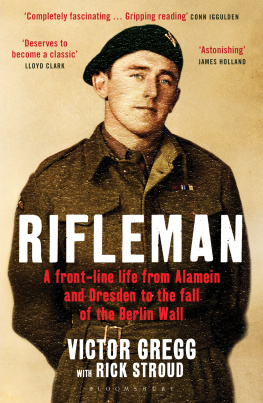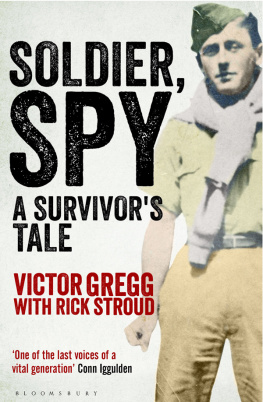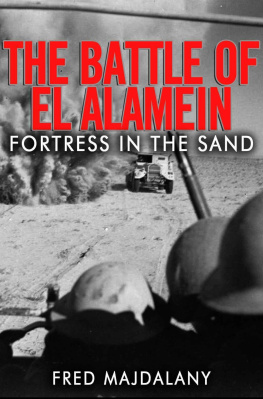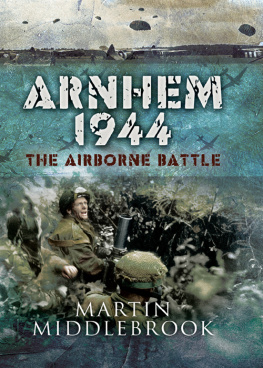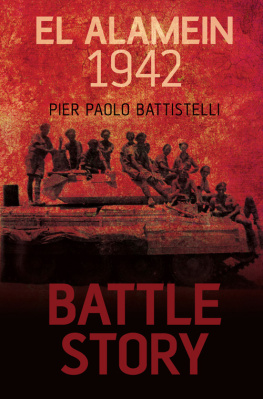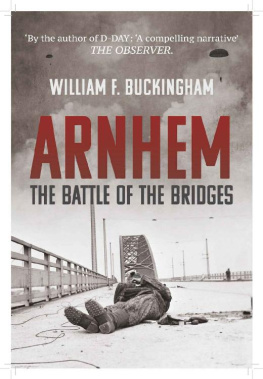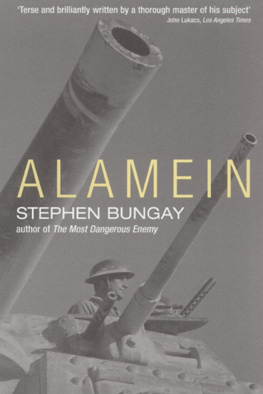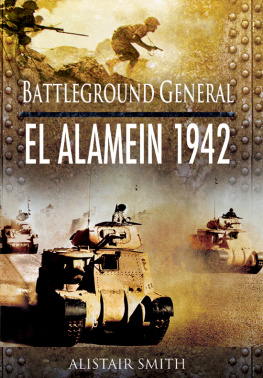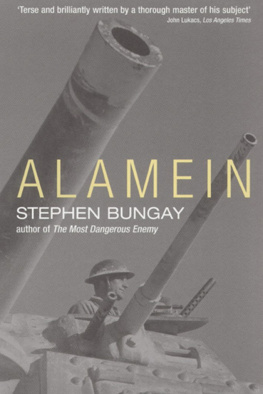As a result of and because of the continued insistence of my grandchildren I commenced the drafting of this manuscript some twenty years ago. Today, all these years later and after many revisions, this work is now being offered for general consumption.
There are many people to thank, not necessarily for their input but because of their encouragement. On the professional side, of those who have helped and assisted me in this compilation of the events that have made up my life, top of the list must be Rick Stroud who has been the main liaison with the publishers and whose job was editing the manuscript and making sense of my airy-fairy views, which must have tried him to the utmost. Next on the list is Bill Swainson of Bloomsbury Publishing and his dedicated team in Soho Square who, despite my reluctance to mention this or that, have pointed out that there is a moral behind the message I have tried to put forward: Include it, Vic, people have a right to know about these things. I also thank my agent, Victoria Hobbs.
On the personal side, I am certain that, of all the people I have to thank, at the very top of the list is Elizabeth, my dear wife, who through the years has quietly understood my somewhat self-destructive way of living and guided me without rancour along the difficult path of righteousness. Without her support I would most probably have sunk into a mire of self-pity, with a chip on my shoulder bigger than a house. Bett was helped along the road by my children and grandchildren who, despite everything, gave both of us their love and understanding. I have indeed been a very lucky man.
And so this list of acknowledgements is small, but before I go I would above all else dedicate this book to the women of all levels of society who take back their husbands, sweethearts, sons and brothers, and give their love, understanding and devotion to the task of repairing the fractured bodies and minds that are, with some certainty, the lot of any soldier who has served his time in the front line of military combat. They will never be able to eradicate completely the horrors that lie buried in the dark recesses of the mans mind, but their devotion will certainly give him the ability to take his normal place in the world he has to return to.
The name Oradour-sur-Glan probably doesnt mean much to most British people, which is sad. It is a place where a terrible massacre took place. On 10 June 1944 the First Battalion of the 4th Waffen SS Panzer Grenadier Regiment, commanded by Adolph Diekman, burnt the village and murdered its inhabitants. The men were shot in the legs, covered in petrol and set alight. The women and children were locked in the church and burnt alive. The village itself was looted before it was destroyed. There were few survivors. Six hundred and forty-two people died, of whom the youngest was a one-week-old baby and the oldest a ninety-year-old man. Today the village is preserved almost exactly as it was when Diekman and his men had finished their work. It is a silent, solemn place.
Every returning soldier abhors the thought of future conflict and knows that, while there may be victors, there are no winners in the wars between nations. But sometimes war is necessary. I believe it was necessary to stand up against the regime that allowed the massacre at Oradour-sur-Glan and other places, like Lidice, Babi Yar, Wola the list is very long. I would urge anyone who doesnt believe me to visit the remains of Oradour-sur-Glan and to ask themselves whether they would submit to a power that allows such things, and to remember that there may be other regimes we will have to fight in the future. I hate war I have seen what it does but in my view we must keep our guard up, sometimes pacifism just isnt an option, sometimes we have to use force.
I believe it is right to remember those who gave their lives fighting against the Nazis in the Second World War. On Remembrance Day I prefer to remember my fallen comrades at a small ceremony held in Gloucester Place near Victoria in London, where our regimental memorial stands. I dont really like the big parades you see in Whitehall with all the leaders of the political parties present. The last time I visited Oradour-sur-Glan I saw an act of remembrance that gave me more hope for the future than all the prattling that comes from the mouths of our so called leaders.
I watched a small group of German motorcyclists who had arrived in the village young men and their girlfriends whose attire and demeanour served only to accentuate their nationality walk silently and with reverence through the whole village and then visit the museum. What was going through their minds is anybodys guess. In the end they quietly got back on their bikes and rode on. To me this was an act of courage comparable to any I have ever witnessed. I thought that these young people were doomed by history to carry the weight of the sins of their ancestors and that they accepted this.
The manner in which those young men and women behaved that day at Oradour-sur-Glan meant more to me than all the official remembrance parades in the world.
Victor Gregg
Winchester
November 2010
VICTOR GREGG was born in London in 1919 and joined the army in 1937, serving first with the Rifle Brigade in India and Palestine, before service in the Western Desert. Later, with the Parachute Regiment, he saw action in Italy and at the Battle of Arnhem, where he was taken prisoner. He was released from the Army in 1946. He now lives a peaceful life with his wife in a housing complex owned by his old regiment, the Rifle Brigade, in Winchester. Theyre all lads who have put their heads above the parapet, he says. I trust them, they are Riflemen.
RICK STROUD is a film and television director. He has received Emmy and BAFTA nominations and teaches at the National Film and Television School. As a writer he is the author of The Book of the Moon . He lives with his wife in London.
On September, without any warning, the Italian army started moving forward. The roaring and rumbling of a thousand or more heavy diesel engines filled the air and clouds of thick black smoke darkened the sky. We didnt fire a shot until they were a thousand yards from our front. Then all hell broke loose. The twenty-five-pounders to the rear of us opened up, and they were only five hundred yards from us when we were ordered to withdraw.
The whole battalion slewed round to the south of their columns, letting them pass while we kept up a relentless barrage of small arms into the side of their advance. It was a bit like shooting into a herd of cattle. There we were darting about, firing for all we were worth, then beating a hasty retreat when they got our range. It was all clever stuff and not a man or a vehicle was lost in the process.
So began our withdrawal all the way back to Sidi Barrani. We quickly established a routine whereby in the evening both sides would leaguer up for the night. On our side each company, about eighty men, would use their vehicles to form a square with Company HQ in the centre. Out would come whatever rations we might have on board, mainly bully beef and hard-tack biscuits. These would be emptied into a disused petrol tin with the top cut out and this would be placed over another petrol tin half filled with sand with some petrol and oil mixed into it. The petrol was set alight and that was our way of cooking in the desert. The subsequent glutinous mess would be eaten with some relish and followed with liberal helpings of tea. The water was very brackish and always a bit on the salty side. The powdered milk that was added to the brew gave the tea the appearance of curdled Devon cream. When we were lucky enough to be in an area where the water supply was fairly fresh we could escape from this horrible concoction, but that wasnt very often. The Italians pushed our meagre force back to Sidi Barrani and there, for reasons known only to themselves, they stopped. After a week had passed it seemed that the Eyeties were not going to move and we were pulled out of the line for a refit.
Next page
